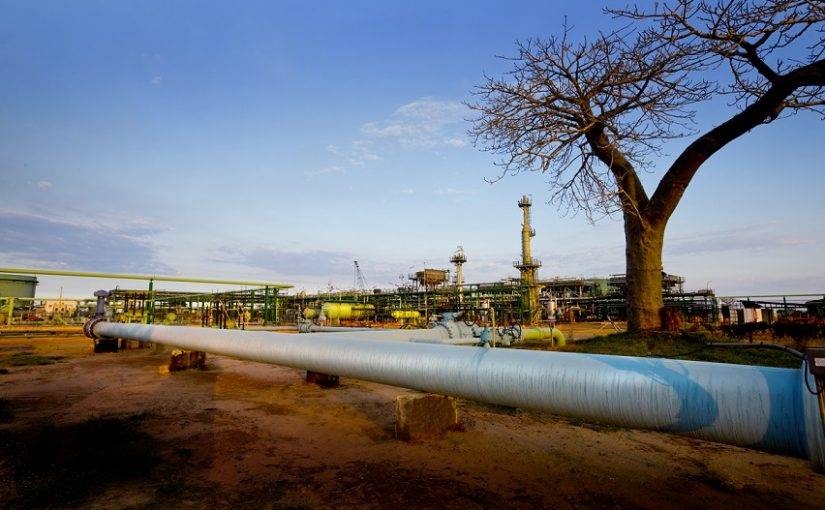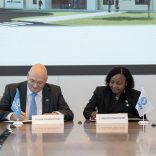ExxonMobil Moçambique, Limitada and the National Oil & Gas Company of Mozambique (ENH) advance ...
South Africa: Mantashe won’t say how much government paid for stake in Sasol gas pipeline – Fin24

File photo: Sasol
- Mineral Resources and Energy Minister Gwede Mantashe says government paid a market-related amount for a stake in the Republic of Mozambique Pipeline Company (Rompco) gas pipeline.
- The department now owns a 40% stake in Rompco.
- Rompco is a joint venture formed in 2004, and is the commercial operator of an 865km high-pressure gas pipeline connecting onshore gas fields in Mozambique to Sasol’s SA operations.
[The South African] Government has avoided revealing how much it forked out for an increased stake in the Mozambique-South Africa Rompco gas pipeline after Sasol sold 30% of its own stake in June.
At the time it was revealed that South African and Mozambican state companies – the South African Gas Development Company (iGas), and a subsidiary of the Central Energy Fund and the Companhia Mocambiçana de Gasoduto (CMG), which both had a shareholding in Rompco – paid a combined R4.1 billion for Sasol’s stake.
Rompco is a joint venture formed in 2004, and is the commercial operator of an 865km high-pressure gas pipeline connecting onshore gas fields in Mozambique to Sasol’s SA operations. It has three shareholders, namely iCas, CMG and Sasol.
On Tuesday, Mineral Resources and Energy Minister Gwede Mantashe declined to tell parliamentarians how much the state-owned entity pay for its part in the deal, except that the price was “market-related”.
However, DA MP James Lorimer said Mantashe could not refuse to tell the portfolio committee how much the department paid for its share in Rompco, given its public status.
“It was market-related, based on the offers of the private sector. We had to match those offers to be able to exercise our pre-emptive rights,” Mantashe responded.
The transaction means that iGas and CMG now each own 40% in the gas pipeline, with Sasol holding a 20% minority. The South African government previously had a 25% shareholding. According to iGas, Standard Bank is the approved lender for the transaction.
The pipeline, which is mainly located in Mozambique, conveys gas from Pande and Temane to Secunda, where it is largely consumed by Sasol with a third sold to industrial users in Mpumalanga, Limpopo and Gauteng.
According to iGas, there was spare capacity to bring additional gas without further infrastructure investment. The Rompco line was not affected by the recent insurgent attacks, which rocked the northern part of Mozambique.
On the South African side, only the Komatipoort compressor station has been granted a national key point status, and iGas said a cost assessment for the extension of the key point status for the entire South African pipeline was still to be made.
Declaring the infrastructure a national key point will afford it additional security.
The natural gas discoveries in recent years in the country have strengthened the country’s position for future gas production, and last year, Total announced that it has made a second discovery in the country, a year after another find off the shore of Mossel Bay.
The Luiperd well located in the Outeniqua Basin and the Brulpadda well discovered by Total have been hailed as game-changers, in a country that largely depends on imports.
By Sibongile Khumalo












Leave a Reply
Be the First to Comment!
You must be logged in to post a comment.
You must be logged in to post a comment.